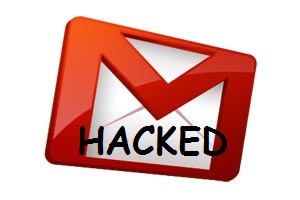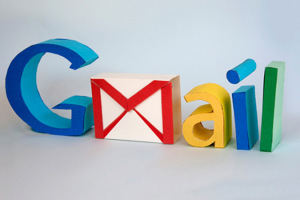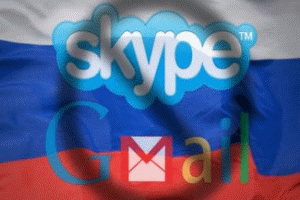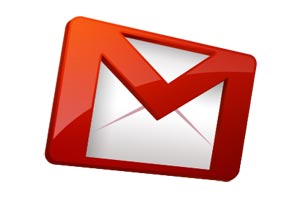What Google shares about you
 It’s no secret to anyone to know that Google keeps every bit of data it collects about each of its users. This data includes, but is not limited to, search phrase history, links clicked, Gmail conversations and so on.
It’s no secret to anyone to know that Google keeps every bit of data it collects about each of its users. This data includes, but is not limited to, search phrase history, links clicked, Gmail conversations and so on.
All data is kept and processed “in their ordinary course of business,” which obviously includes spam filtering, selecting relevant ads for users and the individual tuning of search results. This last piece is still not obvious to most users, but for the last few years each of us has had our very own Google. If you find something funny or unexpected, or you see your own website on the first page of search results, don’t rush to show this to your friends.
Read moreHow to check what Google knows about you?

It's easy to understand why privacy advocates and policymakers are sounding alarms about online privacy in general – and singling out Google in particular. If you use Google's search engine, Google knows what you searched for as well as your activity on partner Web sites that use its ad services.
The more Google knows about you, the more it can match you to an advertiser who thinks you are an ideal customer. Advertisers are willing to pay more for ads served to ideal potential customers. For instance, airlines want to target people who love to travel. Want to find out all the things Google knows about you? Here are 6 links that will show you some of the data Google has about you.
Read moreHackers are using Gmail drafts to steal data
 In his career-ending extramarital affair that came to light in 2012, General David Petraeus used a stealthy technique to communicate with his lover Paula Broadwell: the pair left messages for each other in the drafts folder of a shared Gmail account.
In his career-ending extramarital affair that came to light in 2012, General David Petraeus used a stealthy technique to communicate with his lover Paula Broadwell: the pair left messages for each other in the drafts folder of a shared Gmail account.
Now hackers have learned the same trick. Only instead of a mistress, they’re sharing their love letters with data-stealing malware buried deep on a victim’s computer. Researchers say they’ve found a strain of malware on a client’s network that uses that new, furtive form of “command and control”—the communications channel that connects hackers to their malicious software—allowing them to send the programs updates and instructions and retrieve stolen data.
Read moreService Gmail was compromised
 Popular Gmail service could not resist hacking, which led to the promulgation of a huge addresses database. Recently, the same thing happened with Yandex and Mail.ru. 4 929 090 gmail.com accounts became public. Authenticity has not been confirmed, but it is said about 60 percent of current addresses and passwords.
Popular Gmail service could not resist hacking, which led to the promulgation of a huge addresses database. Recently, the same thing happened with Yandex and Mail.ru. 4 929 090 gmail.com accounts became public. Authenticity has not been confirmed, but it is said about 60 percent of current addresses and passwords.
People perceived this information quite easily, saying that such fraud is not new. This is certainly true, but many users find themselves in the lists of exposed information, then they changed the passwords and began to be more careful to the security of their data. From the fact that bases appear from many services, messages from "Yandex" and Mail.ru are correct, and it is not the result of data leakage.
Read moreHackers attack Gmail users
 Having pretended to be Gmail Account Services hackers send harmful emails to account owners.
Having pretended to be Gmail Account Services hackers send harmful emails to account owners.
According to the researches of the Chinese security software company, called Trend Micro, hackers have launched a campaign, which gives itself as Google‘s support service and is directed against users of Gmail service. Hackers work in such a way: the victim gets email allegedly from Gmail Account Services in which the owner of an account is informed on the unknown user authorization in his account with the help of unrecognizable device. The expert of the Trend Micro Company Jay Yaneza noted that the email can really be confused with the original notice of Gmail; however the knowing and attentive user will be able to find some differences.
Read moreFacebook, Gmail, Skype face Russia ban under 'anti-terror' data snooping plan
 Russia's parliament has passed a bill that could see Western technology firms barred from operating if they fail to store Russian data within the country.
Russia's parliament has passed a bill that could see Western technology firms barred from operating if they fail to store Russian data within the country.
The legislation would require Silicon Valley companies, such as Facebook, Google’s Gmail, and Microsoft-owned Skype, to relocate Russian customer data back onto Russian soil in order to allow authorities to legally acquire and inspect data at will. Currently, Russian authorities have no powers to acquire data outside its borders, unless they submit a lawful mutual legal assistance request, which can be denied by that nation.
Read moreGoogle now encrypts Gmail traffic to and from its servers
 Google today filled one more privacy and security hole in its Gmail email service by encrypting all message traffic between email users, the search engine giant's email servers, and its data centers.
Google today filled one more privacy and security hole in its Gmail email service by encrypting all message traffic between email users, the search engine giant's email servers, and its data centers.
The full HTTPS encryption move was the next logical step to protecting Gmail users from the snooping eyes of government or malicious actors. "Starting today, Gmail will always use an encrypted HTTPS connection when you check or send email. Gmail has supported HTTPS since the day it launched, and in 2010 we made HTTPS the default. Today's change means that no one can listen in on your messages as they go back and forth between you and Gmail's servers--no matter if you're using public WiFi or logging in from your computer, phone or tablet," said Nicolas Lidzborski, Gmail Security Engineering Lead, in a blog post announcing the move.
Read moreU.S. creates a machine for blackmail
 Representatives of Obama‘s Administration continue to insist that spying on Americans is not a violation of constitutional rights of citizens and carried out exclusively in the interests of national security.
Representatives of Obama‘s Administration continue to insist that spying on Americans is not a violation of constitutional rights of citizens and carried out exclusively in the interests of national security.
However, Chris Kitts, the father of beforeitsnews.com, believes that the obtained information is used not only for security purposes.
According to Chris Kitts, Washington creates “The machine for the implementation blackmail. Now they have access to the emails of people who are in the data store in Utah.
Read moreGoogle: don't expect privacy when sending to Gmail
 People sending email to any of Google's 425 million Gmail users have no "reasonable expectation" that their communications are confidential, the internet giant has said in a court filing.
People sending email to any of Google's 425 million Gmail users have no "reasonable expectation" that their communications are confidential, the internet giant has said in a court filing.
Consumer Watchdog, the advocacy group that uncovered the filing, called the revelation a "stunning admission." It comes as Google and its peers are under pressure to explain their role in the National Security Agency's (NSA) mass surveillance of US citizens and foreign nationals. "Google has finally admitted they don't respect privacy," said John Simpson, Consumer Watchdog's privacy project director.
Read more New secured zone of Google Play: secure messenger SafeUM for Android. Download, Install, Communicate
New secured zone of Google Play: secure messenger SafeUM for Android. Download, Install, Communicate
Axarhöfði 14,
110 Reykjavik, Iceland














